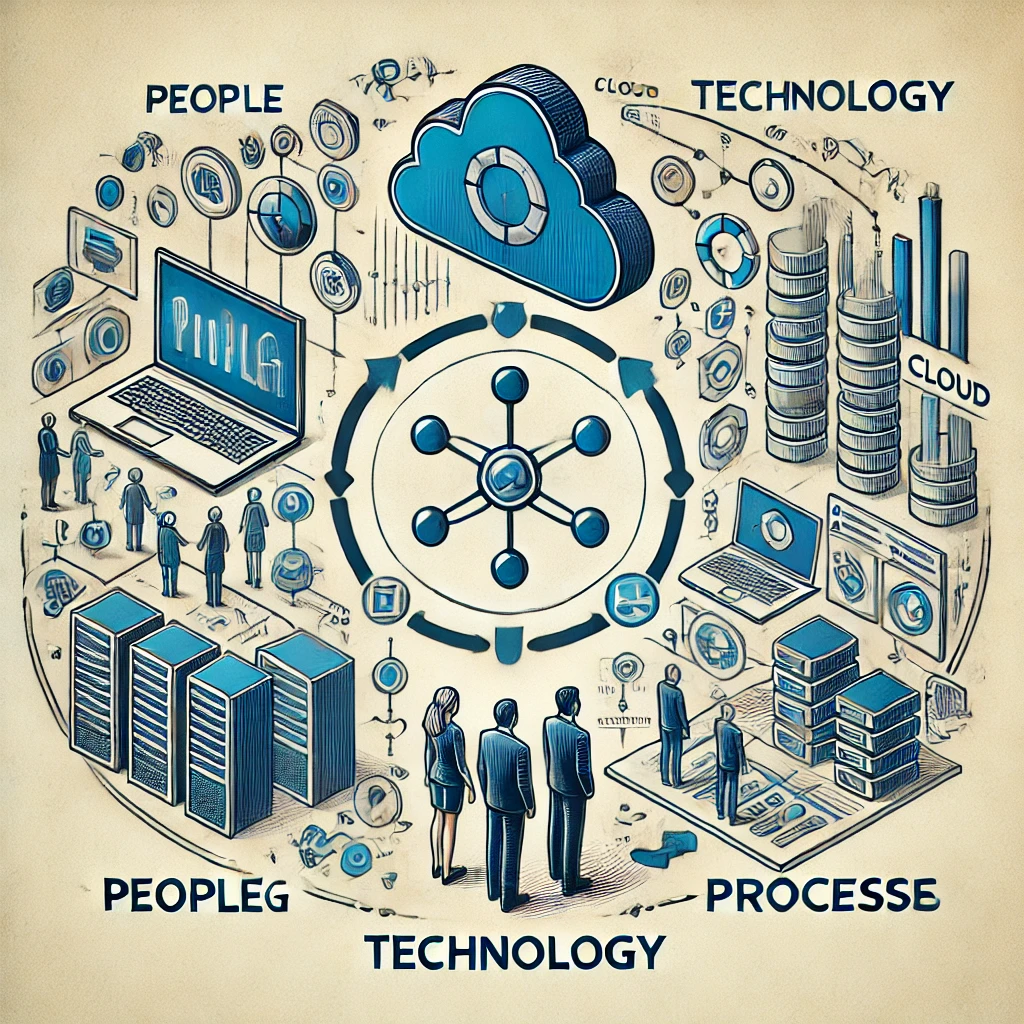In the field of informatics, the People, Technology, and Processes (PTP) framework is a comprehensive approach to managing information systems. It highlights the importance of the human element, the technology being used, and the processes that guide operations. These three components work together to ensure the success of information systems in organizations.
Table of Contents
The Role of People
People are at the core of any information system. They are the users, operators, and decision-makers who interact with the technology and follow the processes. Without the right people in place, even the most advanced technology can fail. In the PTP framework, it’s essential to ensure that the users are well-trained and capable of utilizing the systems effectively.
Importance of Communication and Skills
One critical aspect of the “people” component is communication. People need to collaborate effectively to ensure smooth operations. Furthermore, having the right skills and knowledge is crucial. When users understand the technology and processes, they can optimize the system’s performance.
The Role of Technology
Technology refers to the hardware and software that make up the information system. In the PTP framework, the right technology can streamline processes, increase productivity, and reduce errors. However, technology alone isn’t enough; it must be integrated with skilled people and efficient processes.
Advancements in Technology
Informatics is constantly evolving, and advancements in technology such as artificial intelligence (AI), cloud computing, and big data analytics have revolutionized how organizations process and manage information. These technologies allow organizations to automate tasks, analyze vast amounts of data, and make informed decisions faster.
Choosing the Right Tools
It’s important to select the right technology that fits the specific needs of the organization. Whether it’s a data management system or a communication platform, technology should align with the organization’s goals and processes.
The Role of Processes
Processes define the procedures and workflows that guide how technology is used and how people operate within a system. They ensure consistency, efficiency, and quality in the management of information. Without well-defined processes, the system can become chaotic, leading to errors and mismanagement.
Streamlining Processes
Informatics requires a constant review and improvement of processes. By streamlining processes, organizations can reduce bottlenecks, improve data flow, and ensure that tasks are completed efficiently. Automation can play a huge role in optimizing processes, making them faster and more reliable.
Process Standardization
Standardizing processes ensures that everyone follows the same steps and uses the technology in the same way. This not only improves efficiency but also helps maintain data accuracy and security, which is vital in the field of informatics.
Why the People, Technology, and Processes Framework is Important
The People, Technology, and Processes (PTP) framework is essential because it brings together all the elements necessary for a successful information system. Without one of these components, the system may become inefficient or even fail. The framework ensures that organizations remain competitive by aligning people’s skills, the right technologies, and efficient processes.
Ensuring Balance
A successful information system requires a balance between these three components. Too much focus on technology without investing in people and processes can lead to inefficiencies. Likewise, ignoring technology advancements can leave the organization behind in today’s fast-paced world.
Conclusion
The People, Technology, and Processes framework of informatics provides a balanced and effective approach to managing information systems. By focusing on skilled users, the right technology, and efficient processes, organizations can optimize their operations, stay competitive, and make better decisions. Informatics continues to evolve, but the core principles of the PTP framework remain essential for success.
